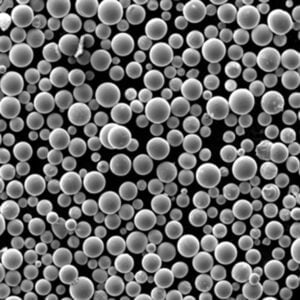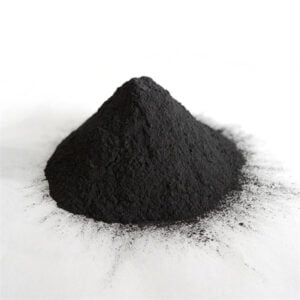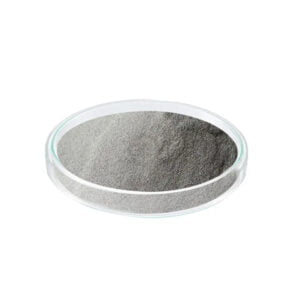An In-Depth Exploration of Ti2Ni
Table of Contents
Ti2Ni, also known as titanium nickelide, is a significant intermetallic compound in the realm of materials science and engineering. This compound is known for its remarkable properties, including high strength, corrosion resistance, and unique shape memory characteristics. These attributes make it highly valuable in various industrial applications, ranging from aerospace to medical devices. This article delves deep into Ti2Ni, exploring its properties, applications, and specific metal powder models to provide a comprehensive understanding.
Overview of Ti2Ni
Titanium nickelide (Ti2Ni) is an intermetallic compound formed from titanium and nickel. This compound falls under the category of shape memory alloys (SMAs), which are materials that can return to their original shape after deformation when subjected to a specific temperature. This unique property, combined with its high strength and resistance to wear and corrosion, makes Ti2Ni a material of choice in demanding applications.
Properties of Ti2Ni
Understanding the properties of Ti2Ni is crucial for appreciating its wide range of applications. Here’s a detailed look at its key properties:
| Property | Description |
|---|---|
| Chemical Composition | Titanium (Ti) and Nickel (Ni) in a specific stoichiometric ratio. |
| Crystal Structure | Orthorhombic structure with specific lattice parameters. |
| Density | Approximately 6.45 g/cm³, making it relatively lightweight. |
| Melting Point | Around 1310°C, indicating high thermal stability. |
| Hardness | High hardness, contributing to wear resistance. |
| Corrosion Resistance | Excellent resistance to oxidation and corrosion in various environments. |
| Shape Memory Effect | Ability to return to original shape upon heating above transformation temperature. |
| Electrical Conductivity | Moderate, suitable for specific electrical applications. |
| Thermal Conductivity | Low to moderate, influencing its thermal management applications. |
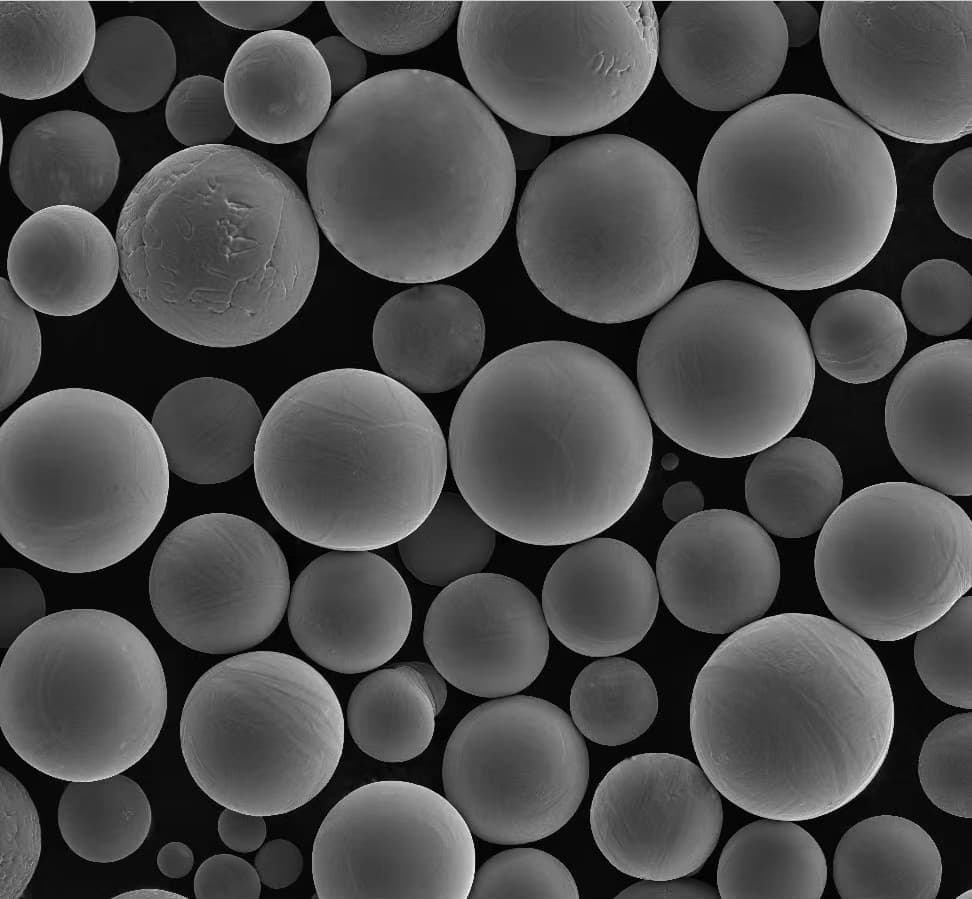
Applications of Ti2Ni
Ti2Ni’s unique combination of properties enables its use in a diverse range of applications. Here are some notable examples:
| Application | Description |
|---|---|
| Aerospace | Utilized in actuators, couplings, and sensors due to its shape memory effect and high strength. |
| Medical Devices | Employed in stents, orthodontic wires, and surgical tools for its biocompatibility and shape memory characteristics. |
| Automotive | Used in temperature control systems and sensors for its durability and performance under stress. |
| Robotics | Incorporated into robotic actuators and joints, benefiting from its flexibility and shape memory properties. |
| Consumer Electronics | Applied in flexible components and temperature-sensitive devices. |
| Industrial Equipment | Utilized in machinery and tools requiring high wear resistance and strength. |
Metal Powder Models of Ti2Ni
When it comes to metal powder models of Ti2Ni, there are various forms available, each tailored to specific applications and requirements. Here are some of the prominent models:
- Ti2Ni-PM01: A fine powder model ideal for additive manufacturing and 3D printing, offering excellent flowability and uniform particle size distribution.
- Ti2Ni-PM02: Designed for high-temperature applications, this model boasts enhanced thermal stability and resistance to oxidation.
- Ti2Ni-PM03: Known for its superior wear resistance, making it suitable for coating applications and surface treatments.
- Ti2Ni-PM04: A high-purity powder with minimal impurities, perfect for critical medical and aerospace applications.
- Ti2Ni-PM05: Optimized for electrical applications, featuring moderate electrical conductivity and excellent corrosion resistance.
- Ti2Ni-PM06: Tailored for use in automotive components, offering a balance of strength, flexibility, and durability.
- Ti2Ni-PM07: A specialized powder for robotics, providing the necessary shape memory properties for actuators and joints.
- Ti2Ni-PM08: High-density powder suitable for heavy-duty industrial equipment requiring robust performance under stress.
- Ti2Ni-PM09: Developed for consumer electronics, offering flexibility and thermal management capabilities.
- Ti2Ni-PM10: Versatile powder model used in various research and development applications, facilitating innovation and experimentation.
Specifications and Standards for Ti2Ni
To ensure quality and performance, Ti2Ni powders and components are manufactured according to specific standards and specifications. Here’s a detailed overview:
| Specification/Standard | Description |
|---|---|
| ASTM F2063 | Standard specification for wrought nickel-titanium shape memory alloys for medical devices and surgical implants. |
| ISO 5832-7 | International standard for titanium alloy materials used in surgical implants, covering Ti2Ni compositions. |
| AMS 4999 | Aerospace Material Specification for nickel-titanium alloy powder for additive manufacturing. |
| MIL-T-9047 | Military specification for titanium and titanium alloy forgings, including Ti2Ni. |
| DIN 17862-2 | German standard for titanium alloys used in aerospace applications. |
| JIS H 4600 | Japanese Industrial Standard for titanium and titanium alloy materials. |
| EN 10204 | European standard for metallic products, providing certification for material properties. |
Advantages and Disadvantages of Ti2Ni
Like any material, Ti2Ni has its own set of advantages and disadvantages. Understanding these can help in making informed decisions for its applications.
Advantages of Ti2Ni
- High Strength and Durability: Ti2Ni is known for its impressive strength-to-weight ratio, making it ideal for applications where both strength and lightweight properties are critical.
- Corrosion Resistance: Its excellent resistance to corrosion ensures longevity and reliability in harsh environments.
- Shape Memory Effect: The ability to return to its original shape after deformation is a standout feature, particularly valuable in medical and aerospace applications.
- Biocompatibility: Safe for use in medical devices and implants, Ti2Ni is compatible with the human body.
- Thermal Stability: Can withstand high temperatures, making it suitable for demanding industrial applications.
Disadvantages of Ti2Ni
- Cost: The production and processing of Ti2Ni can be expensive, which may limit its use in cost-sensitive applications.
- Brittleness: Under certain conditions, Ti2Ni can exhibit brittleness, which might be a concern in some structural applications.
- Complex Manufacturing Processes: The fabrication and machining of Ti2Ni components require specialized equipment and expertise.
- Limited Electrical Conductivity: While it has moderate electrical conductivity, it is not suitable for applications requiring high electrical performance.
Suppliers and Pricing of Ti2Ni
The availability and pricing of Ti2Ni can vary based on several factors, including purity, particle size, and application requirements. Here’s a snapshot of some prominent suppliers and their pricing details:
| Supplier | Product Description | Price (per kg) | Notes |
|---|---|---|---|
| ABC Metals | Ti2Ni-PM01 Fine Powder | $250 | High purity for medical use |
| Global Alloys | Ti2Ni-PM02 High-Temperature Powder | $220 | Suitable for aerospace applications |
| TechMetals Inc. | Ti2Ni-PM03 Wear-Resistant Powder | $230 | Ideal for coating and surface treatments |
| AlloySource | Ti2Ni-PM04 Medical Grade Powder | $270 | Certified for surgical implants |
| RoboMet | Ti2Ni-PM07 Robotics Powder | $240 | Optimized for robotic actuators |
| AutoAlloys | Ti2Ni-PM06 Automotive Grade Powder | $225 | Balanced properties for automotive parts |
| InduMet | Ti2Ni-PM08 Industrial High-Density Powder | $215 | Heavy-duty industrial equipment |
| ElecMetals | Ti2Ni-PM05 Electrical Application Powder | $235 | Moderate electrical conductivity |
| ConsumerMet | Ti2Ni-PM09 Electronics Powder | $245 | Flexible components for electronics |
| ResearchMat | Ti2Ni-PM10 R&D Grade Powder | $200 | Versatile for research purposes |
Comparing Pros and Cons of Ti2Ni Models
Choosing the right Ti2Ni powder model depends on the specific application requirements. Here’s a comparative analysis:
| Model | Pros | Cons |
|---|---|---|
| Ti2Ni-PM01 | High purity, excellent flowability | Higher cost |
| Ti2Ni-PM02 | Enhanced thermal stability | Slightly brittle under certain conditions |
| Ti2Ni-PM03 | Superior wear resistance | Complex manufacturing process |
| Ti2Ni-PM04 | Superior purity for medical applications | High cost, specialized handling required |
| Ti2Ni-PM05 | Moderate electrical conductivity, corrosion resistance | Not suitable for high electrical performance |
| Ti2Ni-PM06 | Balanced properties for automotive use | Expensive processing and production |
| Ti2Ni-PM07 | Ideal for robotic actuators, shape memory effect | Limited applications outside robotics |
| Ti2Ni-PM08 | High density, robust performance | Can be brittle under high stress |
| Ti2Ni-PM09 | Flexible and thermal management | Moderate cost, specific to electronics |
| Ti2Ni-PM10 | Versatile for R&D, cost-effective | Not always suitable for commercial use |
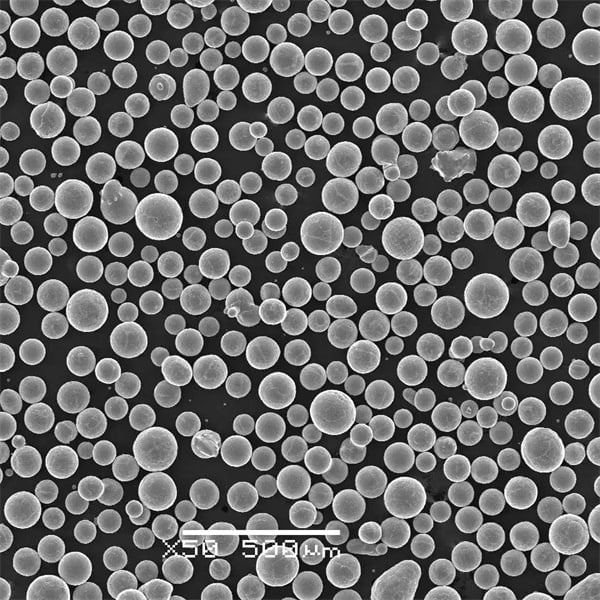
Applications and Uses of Ti2Ni
The unique properties of Ti2Ni make it suitable for a variety of applications across different industries. Here’s a deeper look into some specific uses:
Aerospace Applications of Ti2Ni
In the aerospace industry, Ti2Ni is prized for its combination of high strength, low weight, and the ability to withstand extreme temperatures and stresses. Specific uses include:
- Actuators: Ti2Ni’s shape memory effect allows it to be used in actuators that change shape and function in response to temperature changes, crucial for precision control mechanisms in aircraft.
- Couplings: These components can change their shape and fit into tight spaces, ensuring secure connections that can withstand high pressure and temperature variations.
- Sensors: Ti2Ni’s properties are used to create sensors that can detect and respond to environmental changes, contributing to the overall safety and efficiency of aircraft systems.
Medical Applications of Ti2Ni
Ti2Ni is widely used in the medical field due to its biocompatibility and shape memory effect. Key applications include:
- Stents: These devices, used to keep blood vessels open, benefit from Ti2Ni’s ability to expand and contract with bodily temperatures.
- Orthodontic Wires: The shape memory effect helps in creating orthodontic wires that exert constant pressure on teeth, enhancing treatment effectiveness.
- Surgical Tools: Ti2Ni’s strength and resistance to corrosion make it ideal for surgical instruments that require precision and durability.
Automotive Applications of Ti2Ni
In the automotive industry, Ti2Ni is valued for its durability and performance under stress. Some applications include:
- Temperature Control Systems: Components that utilize Ti2Ni can help manage and regulate engine and cabin temperatures efficiently.
- Sensors and Actuators: Used in various automotive systems to ensure precise control and responsiveness, contributing to overall vehicle performance.
Robotics Applications of Ti2Ni
Robotics heavily relies on materials that offer flexibility and strength, making Ti2Ni a material of choice. Applications include:
- Actuators: Ti2Ni’s shape memory effect is harnessed to create actuators that can mimic human muscle movements, enhancing the functionality of robotic limbs and joints.
- Flexible Joints: These components benefit from Ti2Ni’s ability to undergo deformation and return to their original shape, providing durability and flexibility in robotic systems.
Consumer Electronics Applications of Ti2Ni
In consumer electronics, Ti2Ni is used for its flexibility and thermal properties. Examples include:
- Flexible Components: Ti2Ni is used in flexible displays and other components that require durability and the ability to bend without breaking.
- Temperature-Sensitive Devices: Components that benefit from Ti2Ni’s ability to respond to temperature changes, improving device performance and lifespan.
Industrial Equipment Applications of Ti2Ni
Ti2Ni’s robustness makes it suitable for various industrial applications, including:
- Machinery: Components made from Ti2Ni are used in heavy-duty machinery that requires high wear resistance and strength.
- Tools: Cutting and shaping tools that benefit from Ti2Ni’s hardness and durability, ensuring longer tool life and efficiency.
Specifications, Sizes, Grades, and Standards for Ti2Ni
To ensure the material meets the required performance and safety standards, Ti2Ni powders and components are produced according to stringent specifications. Here’s a detailed look at the different sizes, grades, and standards for Ti2Ni:
| Specification/Standard | Description |
|---|---|
| ASTM F2063 | Specifies the requirements for nickel-titanium shape memory alloys used in medical devices. |
| ISO 5832-7 | International standard detailing titanium alloy materials for surgical implants. |
| AMS 4999 | Covers the material specifications for nickel-titanium alloy powders used in additive manufacturing. |
| MIL-T-9047 | Military specification for titanium and titanium alloy forgings, including Ti2Ni. |
| DIN 17862-2 | German standard for titanium alloys in aerospace applications. |
| JIS H 4600 | Japanese standard for titanium and titanium alloy materials. |
| EN 10204 | European standard for providing certification for metallic products. |
Sizes and Grades of Ti2Ni
| Grade | Particle Size | Applications |
|---|---|---|
| Grade 1 | < 20 microns | Fine powder for additive manufacturing. |
| Grade 2 | 20-45 microns | Medium powder for general industrial use. |
| Grade 3 | 45-75 microns | Coarse powder for heavy-duty applications. |
| Grade 4 | > 75 microns | Specialized applications requiring larger particles. |
Suppliers and Pricing Details for Ti2Ni
The market for Ti2Ni is competitive, with various suppliers offering different models and grades. Pricing can vary based on purity, particle size, and intended application. Here’s an overview of some key suppliers and their offerings:
| Supplier | Product Description | Price (per kg) | Notes |
|---|---|---|---|
| ABC Metals | Ti2Ni-PM01 Fine Powder | $250 | High purity for medical use |
| Global Alloys | Ti2Ni-PM02 High-Temperature Powder | $220 | Suitable for aerospace applications |
| TechMetals Inc. | Ti2Ni-PM03 Wear-Resistant Powder | $230 | Ideal for coating and surface treatments |
| AlloySource | Ti2Ni-PM04 Medical Grade Powder | $270 | Certified for surgical implants |
| RoboMet | Ti2Ni-PM07 Robotics Powder | $240 | Optimized for robotic actuators |
| AutoAlloys | Ti2Ni-PM06 Automotive Grade Powder | $225 | Balanced properties for automotive parts |
| InduMet | Ti2Ni-PM08 Industrial High-Density Powder | $215 | Heavy-duty industrial equipment |
| ElecMetals | Ti2Ni-PM05 Electrical Application Powder | $235 | Moderate electrical conductivity |
| ConsumerMet | Ti2Ni-PM09 Electronics Powder | $245 | Flexible components for electronics |
| ResearchMat | Ti2Ni-PM10 R&D Grade Powder | $200 | Versatile for research purposes |
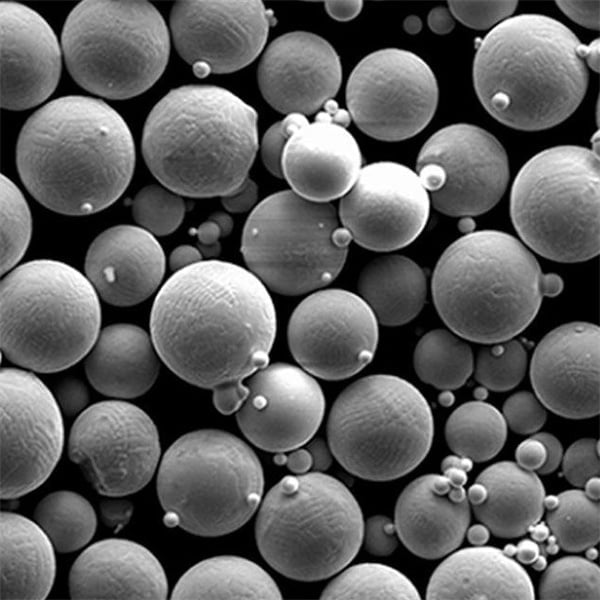
FAQ
To provide a comprehensive understanding of Ti2Ni, here are some frequently asked questions along with detailed answers:
| Question | Answer |
|---|---|
| What is Ti2Ni? | Ti2Ni is an intermetallic compound composed of titanium and nickel, known for its shape memory effect, high strength, and corrosion resistance. |
| What are the main applications of Ti2Ni? | Ti2Ni is used in aerospace, medical devices, automotive, robotics, consumer electronics, and industrial equipment due to its unique properties. |
| What is the shape memory effect? | The shape memory effect refers to Ti2Ni’s ability to return to its original shape after deformation when subjected to a specific temperature. |
| Why is Ti2Ni used in medical devices? | Ti2Ni’s biocompatibility and ability to undergo shape changes with temperature make it ideal for stents, orthodontic wires, and surgical tools. |
| What are the advantages of Ti2Ni? | Advantages include high strength, corrosion resistance, shape memory effect, biocompatibility, and thermal stability. |
| What are the disadvantages of Ti2Ni? | Disadvantages include high cost, brittleness under certain conditions, complex manufacturing processes, and limited electrical conductivity. |
| How does Ti2Ni compare to other shape memory alloys? | Ti2Ni offers a balance of strength, corrosion resistance, and shape memory effect, making it a versatile choice compared to other alloys like Nitinol. |
| Who are the major suppliers of Ti2Ni? | Major suppliers include ABC Metals, Global Alloys, TechMetals Inc., AlloySource, RoboMet, AutoAlloys, InduMet, ElecMetals, ConsumerMet, and ResearchMat. |
| What are the specifications for Ti2Ni? | Specifications include ASTM F2063, ISO 5832-7, AMS 4999, MIL-T-9047, DIN 17862-2, JIS H |
Share On
MET3DP Technology Co., LTD is a leading provider of additive manufacturing solutions headquartered in Qingdao, China. Our company specializes in 3D printing equipment and high-performance metal powders for industrial applications.
Inquiry to get best price and customized Solution for your business!
Related Articles
About Met3DP
Recent Update
Our Product
CONTACT US
Any questions? Send us message now! We’ll serve your request with a whole team after receiving your message.

Metal Powders for 3D Printing and Additive Manufacturing
COMPANY
PRODUCT
cONTACT INFO
- Qingdao City, Shandong, China
- [email protected]
- [email protected]
- +86 19116340731







